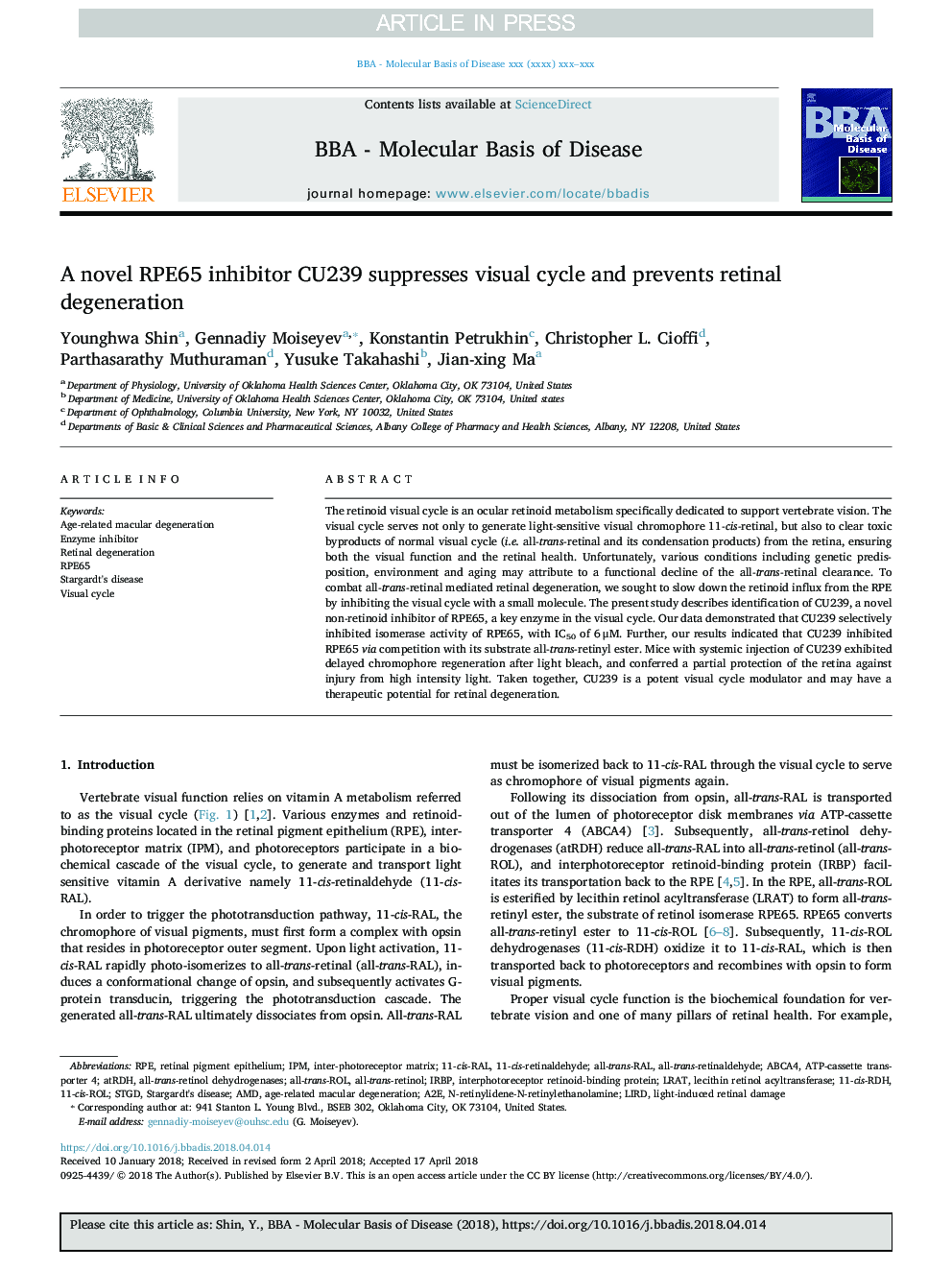| Article ID | Journal | Published Year | Pages | File Type |
|---|---|---|---|---|
| 8258396 | Biochimica et Biophysica Acta (BBA) - Molecular Basis of Disease | 2018 | 10 Pages |
Abstract
The retinoid visual cycle is an ocular retinoid metabolism specifically dedicated to support vertebrate vision. The visual cycle serves not only to generate light-sensitive visual chromophore 11-cis-retinal, but also to clear toxic byproducts of normal visual cycle (i.e. all-trans-retinal and its condensation products) from the retina, ensuring both the visual function and the retinal health. Unfortunately, various conditions including genetic predisposition, environment and aging may attribute to a functional decline of the all-trans-retinal clearance. To combat all-trans-retinal mediated retinal degeneration, we sought to slow down the retinoid influx from the RPE by inhibiting the visual cycle with a small molecule. The present study describes identification of CU239, a novel non-retinoid inhibitor of RPE65, a key enzyme in the visual cycle. Our data demonstrated that CU239 selectively inhibited isomerase activity of RPE65, with IC50 of 6â¯Î¼M. Further, our results indicated that CU239 inhibited RPE65 via competition with its substrate all-trans-retinyl ester. Mice with systemic injection of CU239 exhibited delayed chromophore regeneration after light bleach, and conferred a partial protection of the retina against injury from high intensity light. Taken together, CU239 is a potent visual cycle modulator and may have a therapeutic potential for retinal degeneration.
Keywords
Related Topics
Life Sciences
Biochemistry, Genetics and Molecular Biology
Ageing
Authors
Younghwa Shin, Gennadiy Moiseyev, Konstantin Petrukhin, Christopher L. Cioffi, Parthasarathy Muthuraman, Yusuke Takahashi, Jian-xing Ma,
